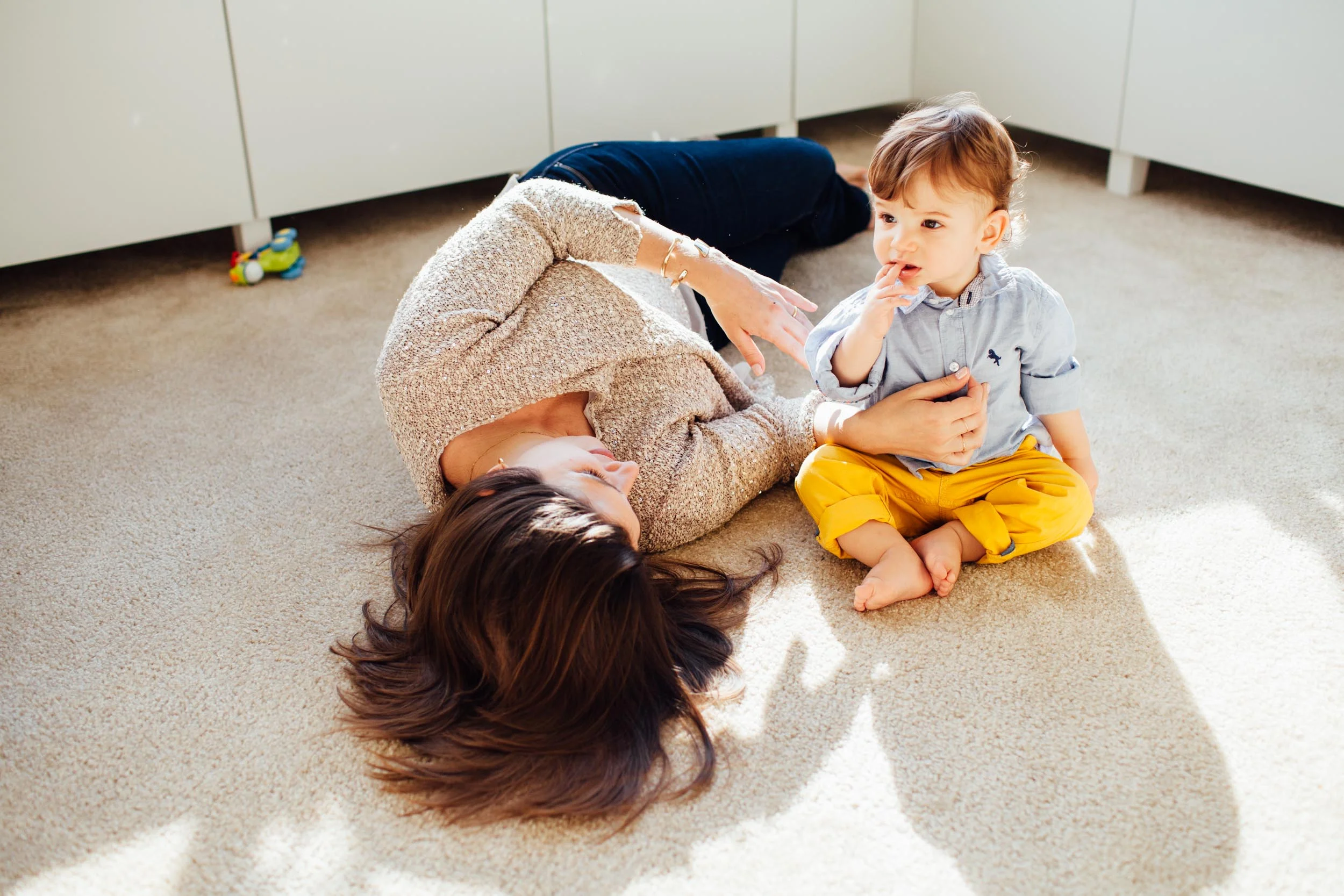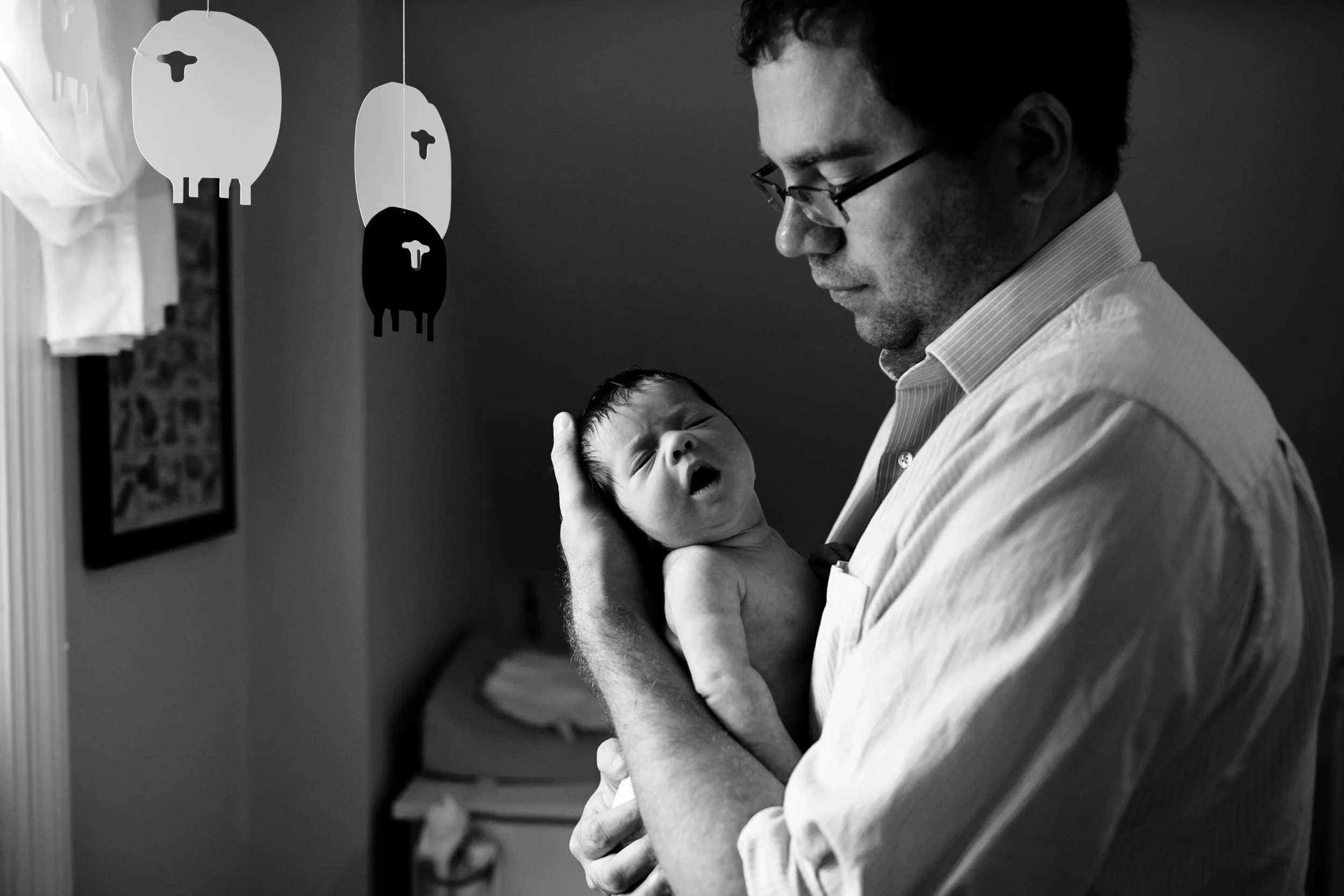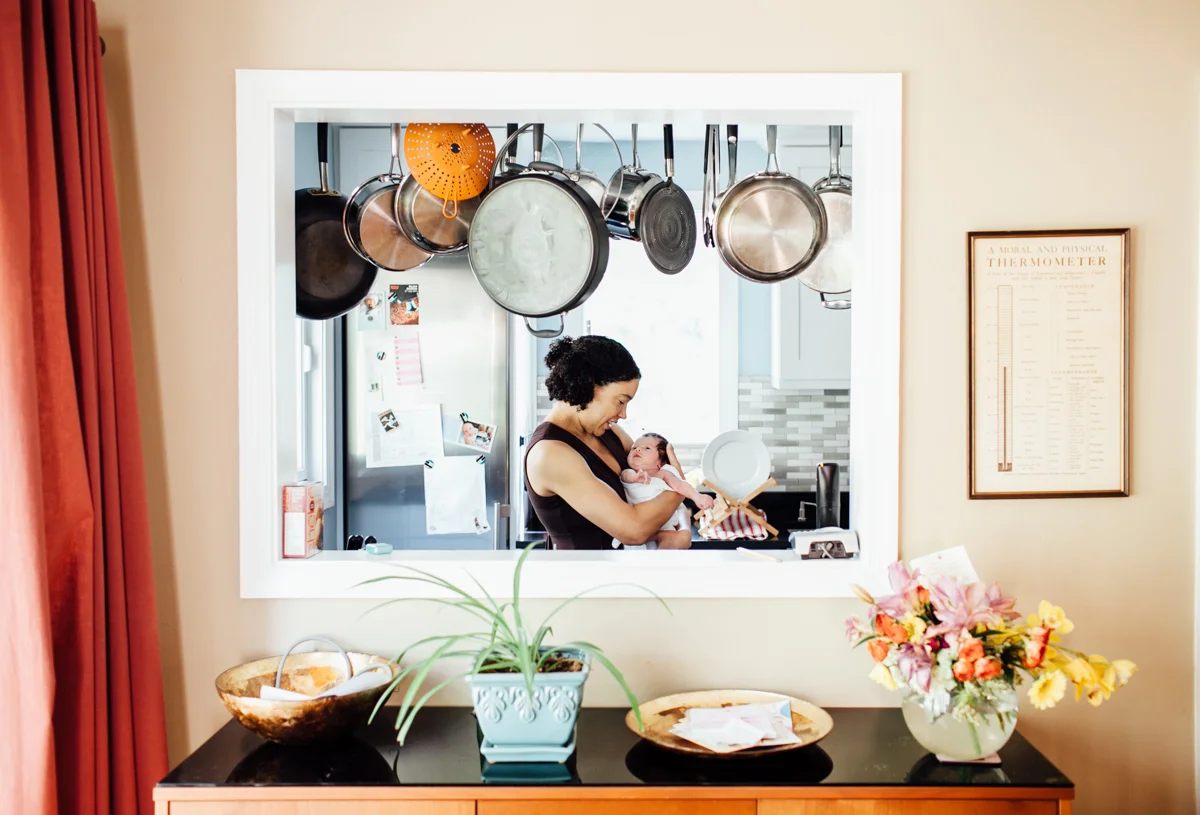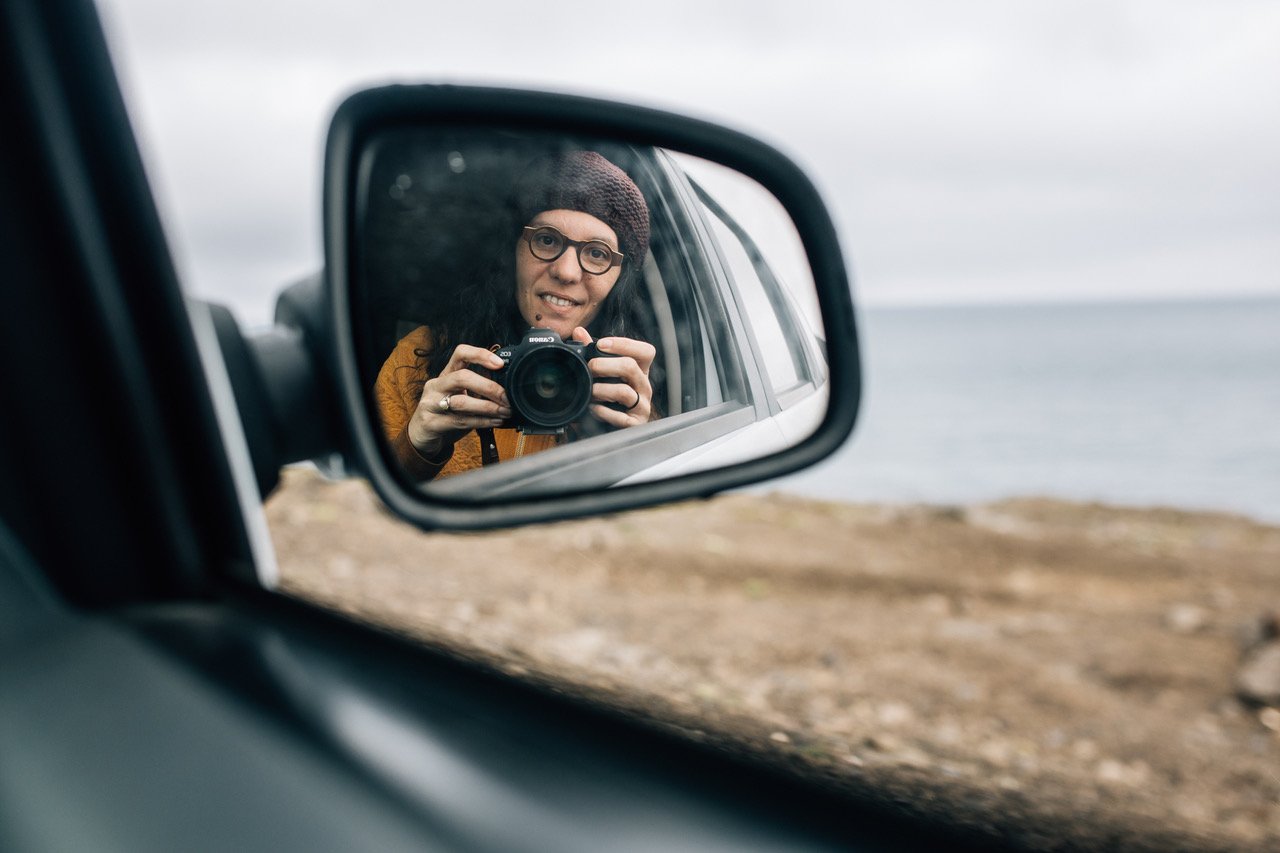What photography style to choose for my family pictures? • Maryland family photographer Juliette Fradin
If you have ever hired a photographer in the past (or tried to), let's be honest: it is tough work! There are plenty of photographers ready to press that shutter and freeze little Johnny's smirk but before picking one, you need to know what you WANT and which style is the best fit (and that can change from one time to another). Because it is a time-consuming process, you need to think about what is it you are looking for before finding the right one for your family.
TRADITIONAL, CLASSIC PHOTOGRAPHY. Images that transcend generations
It's like in the old days where having your picture taken was a little event in itself (it always is in my opinion!). Due to camera technology, you had to stay still and pose in front of the photographer, generally in a studio setting. The approach today is still formal except more modern (but your children will still laugh at you in a few years no matter what). You will still get the backdrops, the props, the artificial lights, everybody looking at the camera. Usually everybody wears their best outfit to look fancy (bowtie anyone?) or even matching clothes (but that seems to be fading away, thank God).
The editing is classic, the goal is to produce timeless photographs that will eventually end up in a photo album with a large emphasis on the portraits. The focus is on the people.
There are photographers who rock this style like Sandra Coan (in Seattle), known for her film sessions of newborns in her studio (film is NOT dead!!), or Taura Horn in Nebraska.
Something I am totally obsessed about right now is Tintype photography. It is described as “the polaroid of the 19th century,” where your photo ends up on a piece of metal. If you are curious, you can check Emily White based in Richmond, VA. I might have our family portrait taken this summer in France as I know someone near my hometown! Now, will my 3 year old stay still for 10 seconds?....
What turns a traditional photographer on? Controlling light, style and posing people; editing images (fine art); people who can follow directions; glamorous shots.
Pros: These are great shots to show HOW everybody looked at a certain time. They are beautiful photographs to have when well executed. There is definitely a timeless feel with a touch of melancholy. No worry about weather conditions. Less noise, less distractions.
Cons: This type of photography is very consistent = not much surprise. Your portraits will look similar to the ones in the photographer's portfolio in terms of posing, light... It is not meant for candid moments or tickle fights. You might need to travel some distance to the studio.
For who? Traditional photography is for you if you need something classic that will capture a milestone in your family's life (wedding, newborn, 1st year). Best enjoyed in a frame on your wall.
Keywords: fine art, posed, controlled, milestone, conventional, traditional, analog, minimalist, film, studio, artificial light.
LIFESTYLE FAMILY PHOTOGRAPHY. The ideal version of yourself.
Unless you live under a rock, you must have heard about Lifestyle photography. This has become a potpourri for many things but one sure thing is that it stands for unposed, candid and relaxed – but in appearance only. Don't be fooled by the pretty imagery of happy people on their bed; it all happens under the photographer's directions and styling. There is a natural feel in the images even though it is staged, styled, set up and directed :) Usually you will stand in beautiful light and probably do something you don't typically do (like reading stories on your bed with the whole fam all dressed up and smiling). The photos can be taken in a studio that mimics a cozy interior, with artificial or natural light, or at your home, or outside in a park. The session lasts around 1-2 hours.
Lifestyle photography is nice if you want a better-than-usual self. You will pay attention to the décor and the way the whole family is dressed up. The photographer will direct you a lot with prompts, make silly jokes to make the kids laugh and the parents relax. Best enjoyed in a series of frames, in a photo-album.
What turns a lifestyle photographer on? Beautiful light, great styling & makeup, a studio setting or a pretty photo location, client who can follow some directions and be natural in front of the lens.
Pros: The subjects, the environment and the situation are under control. It is nice if you want the best version of yourself where you feel at your best. Environment is semi-controlled.
Cons: The surrounding is generally meaningless. Even if it is shot at home, you end up in the room with the best available light. It mimics the everyday. Weather dependent. Shooting time might not coincide with family's rhythm (naps, feedings) to catch the better light. Around DC, you need permits to shoot at many locations.
For who? Lifestyle photography is for you if you would like photos where your family looks happy and pretty. It is not your normal self but the ideal version (your pinterest-y version!!). Sometimes we need just that to remember it's not always sound and fury.
Keywords: candid , lifestyle, natural, styled, controlled, studio, on-location, artificial light, natural light.
STORYTELLING FAMILY PHOTOGRAPHY. Do the things you love to do, at the location you love to be.
The photographer is here to narrate a family story, a piece of life, with a series of photographs. Usually, you will fill in a questionnaire so the photographer knows about your family and what you like to do together. Then you will agree on an activity like going to the farmers market, a walk in your neighborhood, a board game or baking at home, maybe putting the sprinklers on or improvising a little dance party. The “story” doesn't need to be on a very special day but rather an everyday moment, almost insignificant. A storytelling photographer will look for emotions during the photoshoot itself and emotions that impact the viewer. Usually, the photographer won't tidy up around the subjects to keep the scene as true (close?) to reality as possible. Same with clothing: you come as you are (superhero cape? Bring it on!). People are at home or somewhere familiar (a brunch place, neighborhood playground...) and definitely choose where to sit, play, eat... The surrounding is part of the story; a location dear to their heart. It is a different feeling than lifestyle sessions because it is personal, emotive and meaningful to the family. It doesn't look like your friends' photos: this is YOUR story.
The photoshoot might be slightly directed; some photographers might ask you to stay where you are or to do that funny thing again but overall it is relaxed and laid-back. It usually lasts for 2 hours.
The photos are presented in a sequence that tell the story of the moment shared together. Best enjoyed in a photo book, in prints or in a series of frames that will remind you of that perfect moment with your loved ones.
What turns a storytelling photographer on? A family who is able to follow little prompts but is mainly doing “their thing” with or without a camera; meaningful location; connection; raw emotions.
Pros: True to life. Relaxed and laid-back. No need to smile at the camera or “act” for the camera. Your house doesn't need to be spotless or look like a magazine. The photographer is here for YOU. Easy with small children. And husbands.
Cons: You need to be comfortable with the person you hire. Read bios, check social media, scan her portfolio and see if you could be friends – at least for a few hours.
For who? For families who want a time capsule of their ordinary to slow down time. You want to remember the places, the feelings, hear the laughter and even the kids bickering at the back of the car. You embrace the flaws and spontaneity of life with kids.
Keywords: storytelling photography, photo essay, photo story, candid, organic.
DOCUMENTARY FAMILY PHOTOGRAPHY/ PHOTOJOURNALISTIC APPROACH.
Be fearlessly you. Or when photography is not about the photographer but the subjects.
Documentary photography is all the rage right now - at least among the photography community – but if you haven't heard about it yet, you definitely will. Documentary family photography is about capturing organic moments of a family in their natural habitat (usually at home*), during their current stage of life. The family is completely spontaneous, there are no posing, props or manipulation of the settings. The session takes place in and around the family's home or at places with meaning to them. Your memorabilia on your shelves will trigger souvenirs for your grown-up kids.
It is based on reality hence no directions from the photographer to keep it as close to real life as possible. The interactions, the way you handle meltdowns, the eating habits, the clothes you wear, the cup you drink from... are what makes you unique. No two families are alike. The goal is to remember a piece of your life as it is, to spark conversations with the kids and, later, show grandkids! Think of it like a normal day spent with your family, doing the things you normally do except there is someone tagging along taking pictures. He/she won't stalk you but be part of your daily activities. You can even check your emails (hello dad!) and have a quiet time on your own. You wear the clothes you normally wear and go about your day as usual: driving to dance practice with the 5 year old, fixing lunch, putting baby down for his nap, breastfeeding, swinging at the park, having a snack with lemonade, kids running naked in the backyard...
A documentary photographer requires a keen eye and needs to be able to shoot in all types of light, to look for creative composition, to “work” a scene to get the best image, and to let it go (no prompts). The session is all about the family being photographed and captures all the feeling and emotions throughout a day (happy, sad, mad, angry, teary, tired, sleepy, joyful, creative, quiet, you name it). You don't need a particular milestone or special reason.
Sessions usually last half a day (at least 4 hours) and up to a full day. Or even several days if you are on vacation. It is a great opportunity to slow down, and be with your family. Time is the essence here so documentary sessions like minis cannot be done in 20-30 minutes (in my opinion!!).
What turns a documentary photographer on? Personal stories, tantrums, a family at home*, mess, life with kids, an ordinary day, beautiful mundane, pure emotions, the stories behind the image.
*Because a session happens at home it doesn't mean it is a documentary session.
Pros: No travels. The surroundings are meaningful. No posing. Don't have to fake anything. No extensive planning needed. Kids don't have to behave. You have time. You will get the whole gamut of emotions from bliss to tears and from sunrise to sunset (almost!).
Cons: Minimal emphasis on posed portraits, finding the “right” photographer and being comfortable, a session takes time.
For Who? For families who feel awkward when posing and cheese-smiling. It is perfect if you embrace the flaws and want an honest record of this stage in your life. After you have warmed up, you won't be self-conscious anymore. Daily life with kids will kick in anyway.
keywords: family photojournalism, documentary, environmental portraits, real moments, in-home photography.
In a nutshell, the principal difference between all of these categories is the amount of photographer's directions and control over the photoshoot.
The traditional photographer will want to control as much as possible whereas the family documentary photographer will let it go. I think there are only a few photographers with a real documentary approach. However, all the categories are porous and sometimes frontiers are blurry: lifestyle photographers might label themselves doing documentary work, etc. Storytelling and documentary genres are pretty close though.
Which one is better? There is no better or worse. It all depends on your family, the stage in your life, what you want to record visually, the goal and what moves you. Sometimes a mini photoshoot will do the trick, sometimes longer sessions are what you want to embrace your family's personality and more complex situations. I have families that return every year or who want a full year documented. Of course budget is something to take into consideration, too. I am partial to the subject but having a visual record of your family growing is important. Aren't pictures the first thing people grab when a house is on fire? This is your legacy for future generations. And to remind you how much LOVE there is under your roof.
I am in you shoes!
This summer we will celebrate 10 years of living abroad and I am hiring a documentary photographer to capture us in France at my mother's for a whole day!! I am so happy someone else is doing that for me and that I will appear in the pictures with my husband and my kids. I am SO looking forward to it.
Now tell me what is the number 1 thing that keeps you from hiring a photographer (besides money)?
Capturing the everyday is not everyone's cup of tea but if you think it's the right fit for you and still have some questions, shoot me an email. I might be able to help.
Bonjour, my name is Juliette and I am a documentary family photographer. I love to photograph families at home, the epicenter of family life, where childhood memories are formed. I will capture your story when you are fearlessly you: when you do the things you love to do in the places you love to be. I catch glimpses of your family's personality when you are in the moment enjoying the simple fact of being together.
I love to document the love (and tears) that goes into family life, or during a sweet reunion, or when you are managing your small business. My style is far from standard posing and cheesy smiles. Instead I capture a feeling, an emotion, a connection. My clients demand something different, something honest and true to real life. Let's do this.









